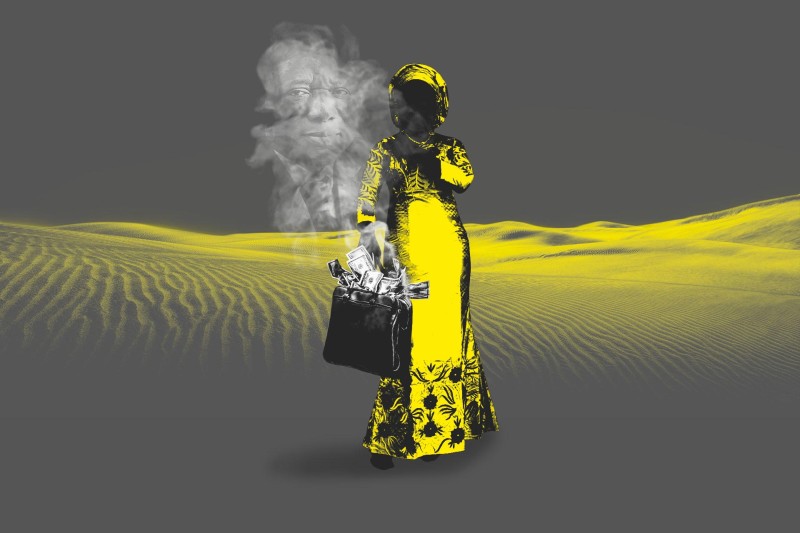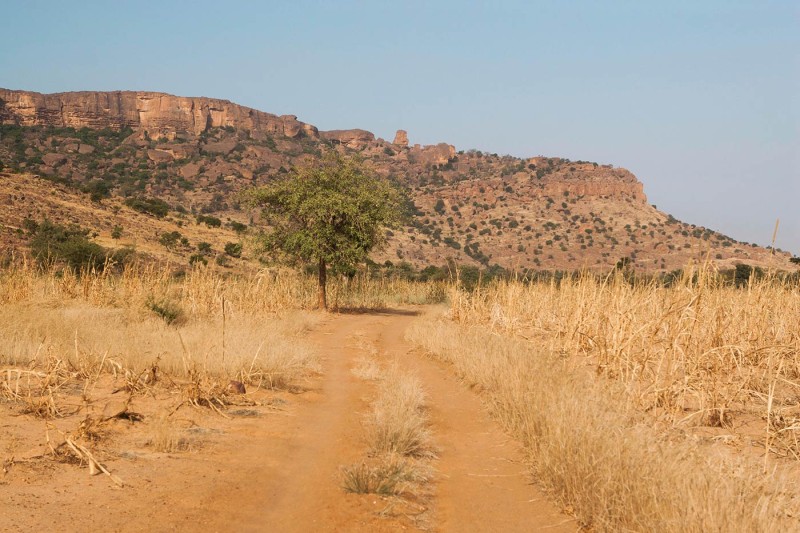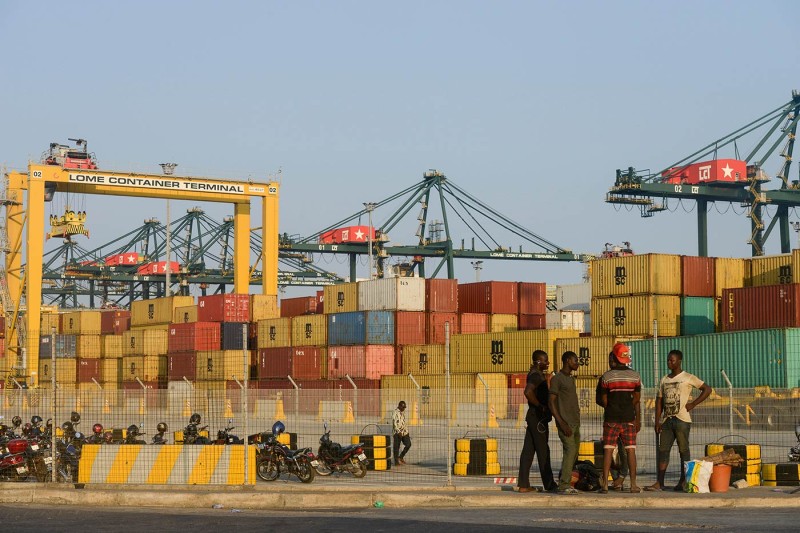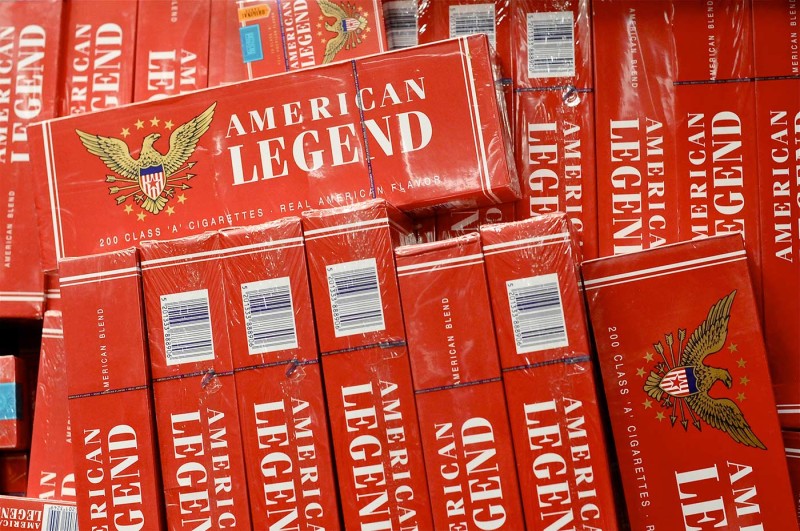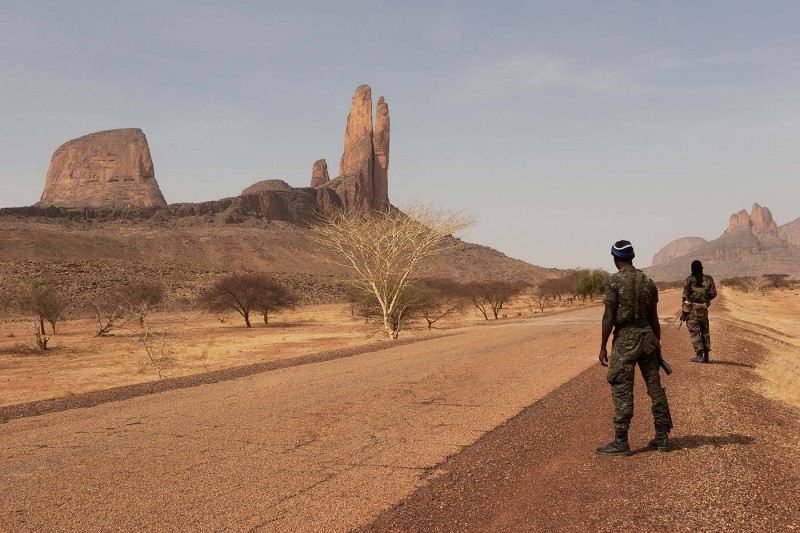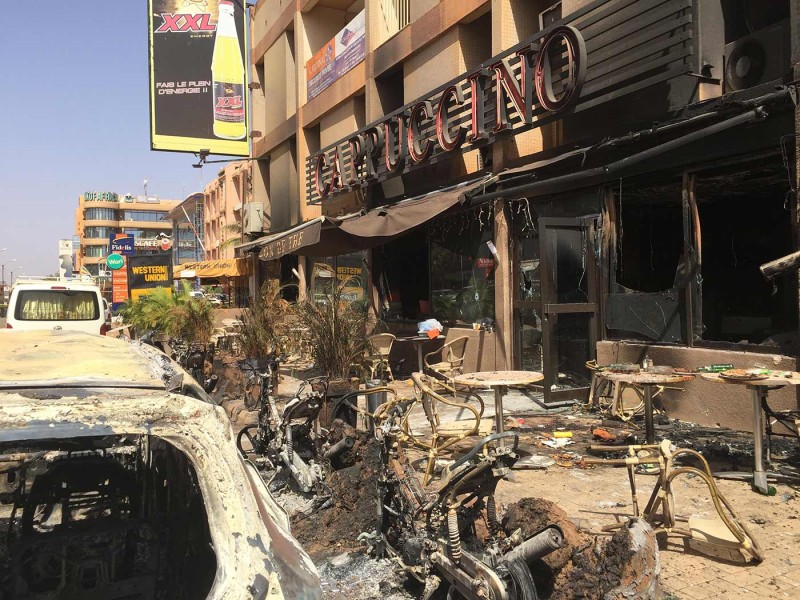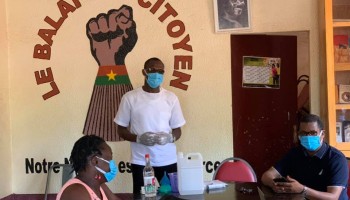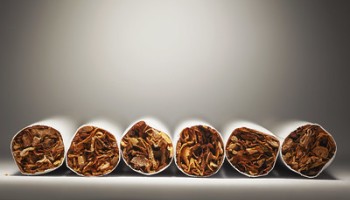On a stormy August day in 2017, the wife of a powerful Congolese former general paid a visit to the head of Mali’s state tobacco company. She was there to “unblock” some business issues for one of West Africa’s richest men, as she put it.
Safy Mokoko Sow, a self-proclaimed fixer operating across West Africa who claims to have ties to the presidential family of Burkina Faso, said she had arranged the sit-down via a mutual contact. She was there to convince Issouf Traore, the head of the company and an influential figure in Mali’s tobacco industry, to stop Malian customs from seizing cigarettes belonging to the Burkinabè tycoon Apollinaire Compaoré, a major distributor of international brands like Marlboro and American Legend.
A few months earlier, hundreds of millions of his cigarettes had been stopped by customs in the country’s northern deserts, where warlords and jihadists vie for control of the lucrative smuggling routes to North Africa and Europe. Compaoré was looking for a way to keep his wares moving, according to Mokoko Sow, and he thought Traore might be the solution to his problems. After all, she said, Traore was the head of the state tobacco monopoly and the customs seizures were “a state matter.”
The exchange was documented in a secret 90-minute recording of the meeting, during which Mokoko Sow sought to underscore her credentials as a fixer for Compaoré and even offered Traore a bribe. (Reporters authenticated the tape recording with a U.S. forensic computing expert, who confirmed it had not been altered or tampered with.)
Although Traore did not accept Mokoko Sow’s offer, experts say the encounter is typical of the back-room deals that have seen cigarette smuggling flourish despite two decades of global efforts to clamp down on the illicit tobacco trade.
Compaoré’s troubles with customs marked the beginning of a downturn in his fortunes in Mali. In June 2018, a year after the recorded meeting, another shipment of his cigarettes was seized by Malian customs, leading to a public controversy. And in 2019, Compaoré was named in a United Nations report on the illicit tobacco trade as a figure who worked with regional smugglers.
But back in 2017, he was used to being able to move his products easily through Mali. Mokoko Sow said he was eager to find any way possible to stop his cigarettes from being seized. One possibility, she suggested, was for the tycoon to pay Traore as much as 100 million West African francs (around $180,000) for his assistance in making sure customs would not impede him in the future.
“[Compaoré] is in a hurry,” she told Traore. “He said he’s ready to pay it.”
At the time, 100 million francs was at least 150 times what many professional Malians earned in a year. But Traore didn’t respond directly to the offer of a payment, playing down his influence on the matter.
“I’m just an industrialist and trader,” he said. “So it isn’t quite right to say that I have the keys to all of this.”
Two former managers in Compaoré’s companies confirmed that Mokoko Sow had worked for the businessman, with one saying they had seen her in his company offices and with Compaoré in Burkina Faso. They requested anonymity over fears for their security. Two other sources in the West African tobacco industry, one of whom worked in Mali for a major international tobacco brand, said they were aware at the time that Mokoko Sow had visited Traore to offer a substantial bribe on Compaoré’s behalf. They also requested anonymity due to the terms of a non-disclosure agreement or concerns about a backlash within the industry.
Both Compaoré and Mokoko Sow declined to comment. Traore told reporters that his position in the state tobacco company meant he could not comment on the tape’s contents.
Benoit Gomis, an illicit trade consultant at the University of Bath, said the exchange illustrated how tobacco company distributors like Compaoré have to work with — and sometimes seek to corrupt — state officials.
“Cigarette smuggling is often portrayed as dominated by terrorist and organized crime groups. But, very often, the key enablers are Big Tobacco and their distributors deceiving or working hand-in-hand with governments,” said Gomis.
“Corruption is at the heart of it all.”
‘If I Have to Pay, I Will Go to Mali’
Cigarette smugglers move their products through countries with weak borders and institutions in order to avoid taxes, often easing their path by paying off public officials along the way. These payments are just a tiny fraction of what smugglers can save in duties — sometimes millions of dollars per container.
Compaoré’s cigarettes have long moved through the lawless deserts of Mali, Niger, and Libya, areas under the control of armed groups and Islamic militants, where customs barely functions. The smuggling routes in this region — known as the Sahel — cross areas controlled by armed groups and insurgents, who take a cut in exchange for protecting and guiding convoys. The region’s illegal tobacco trade, worth an estimated $600 to $800 million a year, helps finance these groups, making cracking down on cigarette smuggling in the Sahel a priority for government agencies as far away as the U.S. and Europe.
Traore told Mokoko Sow that Malian officials had become concerned that Compaoré was moving so many cigarettes through the region, leading to the seizures.
“What bothered customs is that [the cigarettes] were going through places where there aren’t, in fact, any Malian customs,” he told her.
Pressing his point, Traore noted that customs officers were increasingly seizing illicit cargoes of American Legend cigarettes — distributed by Compaoré — in towns near Mali’s northern border. The problem had grown so much he estimated that “50 percent of the market in Gao and Timbuktu is these contraband cigarettes.”
Only a few months earlier, the head of Mali’s customs had written to his counterpart in Burkina Faso to complain about two incidents in 2016 and 2017, in which hundreds of millions of illicit American Legends cigarettes had been seized in Mali on their way from the Burkinabè city of Markoye.
Customs officers discovered the cigarettes lacked paperwork, hadn’t been declared for transit, and weren’t marked for sale in Mali — all signs that they were being smuggled north to more lucrative markets.
Mokoko Sow ignored his suggestion that the cigarettes were being smuggled.
Compaoré often routed his cigarettes through Mali en route to a longtime client in Algeria, she said, emphasizing that “he doesn’t sell them [in Mali].”
As Mokoko Sow pressed Traore, he began asking her pointed questions about why Compaore was moving American Legends through Mali in the first place, if they were manufactured in Greece and destined for Algeria.
Mokoko Sow couldn't offer a clear answer. Instead she pivoted, emphasizing her track record of resolving issues for her clients. This wasn’t the first time she’d “unblocked” Compaoré’s business issues, she told him. “I am known throughout Africa, but discreetly, and I have done my thing since forever,” she said, citing an arrangement she claimed to have brokered in Togo in 2016.
“In Lomé there was a blockage because the new customs director wanted, as is normal, certain people want to have their thing,” Mokoko Sow said, referring to Togo’s coastal capital. “But [Compaoré’] has done this for 20 years. I visited Lomé several times; we settled it with friends.”
Mokoko Sow’s Many Claims
During her meeting with Traore, Mokoko Sow claimed to have first met Compaoré in the 1990s, via the then-president of Burkina Faso, Blaise Compaoré (who is not related to Apollinaire.) A relative of the former president confirmed she was known to his family.
OCCRP confirmed that seven containers of American Legends consigned to Compaoré’s company SOBUREX docked in Lomé port in October 2016, around the time Mokoko Sow described. Customs records show the cigarettes were held for several months before being loaded onto trucks bound for Burkina Faso’s capital.
A former manager of Compaoré’s tobacco business, who knew about operations in both Mali and Togo, confirmed that the tycoon had had “lots of problems in 2016” with Togolese customs. Reporters couldn't confirm if Mokoko Sow had paid to get these containers released.
Togolese customs told OCCRP the shipments were seized because they did not respect Togolese regulations on the sale of tobacco products and their transit through the country. The customs authority confirmed that the cigarettes were later released, without explaining why, but added: “Nothing can justify any attempt at a bribe.”
Karelia Tobacco Company, which makes American Legends, said it had stopped working with Compaoré several years ago and declined to comment further.
When none of Mokoko Sow’s tactics made any headway, she repeated Compaoré’s offer to pay to make sure his cigarettes weren’t seized again.
“He said: ‘Listen, if they tell me if I have to pay, I will go to Mali. If I have to go to Mali — if I have to pay 100 million [West African francs] a year so they leave me alone and the cigarettes will pass — it’s no problem,’” Mokoko Sow said of Compaoré. Traore again ignored the offer, changing the subject rather than responding directly to her suggestion.
Almost an hour later, Mokoko Sow seemed to understand that Traore wouldn’t help her. She said she would go back to Compaoré to discuss the issues raised in the meeting. “I saw customs, I saw you, you have all the information you need,” she said.
Funding ‘Terrorism’
Just a few months before Mokoko Sow met with Traore, a French strategic intelligence company that received funding from major multinational tobacco company Philip Morris had concluded that Compaoré’s illicit business funded “terror groups.” This was potentially awkward, because Compaoré is a distributor of Philip Morris brands like Marlboro.
The French company, ADIT, was in 2016 among the first to be granted funds by PMI IMPACT, a global pro bono initiative by Philip Morris to “develop and implement projects against illegal trade” and associated crimes. The same year, ADIT wrote a report, which was not made public, concluding that Compaoré had trafficked billions of cigarettes using his Burkinabè company, SOBUREX.
It’s unclear if Philip Morris knew of this report at the time, though two of its five authors are part of PMI Impact's "expert council." ADIT’s findings were later corroborated by U.N. reports, court cases, Burkina Faso’s parliament, and media articles — including by OCCRP.
Philip Morris didn’t respond to detailed questions from OCCRP on the ADIT report and Compaoré, referring reporters to its response to a previous investigation. In it, the Swiss company said it had “no information that our products destined for Burkina Faso are instead illegally diverted into neighboring countries,” adding that the “illicit [tobacco] trade is a scourge on society and the economy.”
Coordinated Campaign
The ADIT investigators estimated that SOBUREX had ordered shipments of 1 billion cigarettes — enough to fill ten 40-foot shipping containers — every four to five months. These were then routed through Togo and Burkina Faso and rapidly re-exported north by truck to other countries, especially Mali..
Each shipment turned between 7 and 18 million euros of profit for Compaoré, according to ADIT’s analysis. The tycoon’s cigarettes also likely funded militants as they moved through the region, the report concluded.
“The very large number of cigarettes sent by SOBUREX into the north of Mali … leaves one to think that the cigarettes have a final destination of markets in North Africa and Europe, financing in their passage the ensemble of terror groups present in the region,” the analysis said.
ADIT was not alone in its conclusions. A string of court cases and a report for the U.N. Security Council found that SOBUREX had worked with notorious smugglers in the Sahel, including an infamous Nigerien drug lord linked to an offshoot of Al-Qaeda.
In the months before Mokoko Sow approached Traore in 2017, Burkina Faso’s parliament connected the illicit tobacco trade to brutal terrorist attacks in Ivory Coast and Ouagadougou that killed tens of civilians, saying cigarette smugglers sponsored these attacks as revenge when their cargoes were seized. OCCRP later linked Compaoré to the traffic the parliament described.
Even though Compaoré’s business had yet to be publicly linked to terror financing at the time of Mokoko Sow’s meeting with Traore, she repeatedly brought up the issue unprompted, insisting that Compaoré did not fund jihadists.
“He told me … ‘It’s been 30 years and we haven’t talked about terrorism or jihadism. I have the same clients, I have the same people, and so I don’t understand’” why people are raising concerns about the tobacco trade and terrorism now, she recounted.
Traore replied that he was under pressure to explain how the militants were being funded.
“Everyone knows today that it is the trafficking of cigarettes, drugs, and human beings that finance the terrorism in the center [of Mali],” he said. “It’s not me who says this. Everyone knows it.”
Editor's Note: In a letter sent by his lawyer on May 31, 2023, Compaoré said his activities “have never contributed to fuelling terrorism” and that his company had “always operated with full transparency” and in conjunction with the relevant authorities and regulators. He said his work with Philip Morris in Burkina Faso was under the terms of a “formal partnership contract” and that this business had never been charged with any wrongdoing. Compaoré rejected any link to Mokoko Sow.
